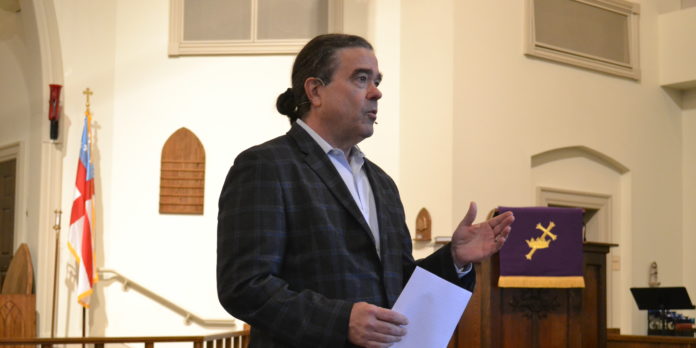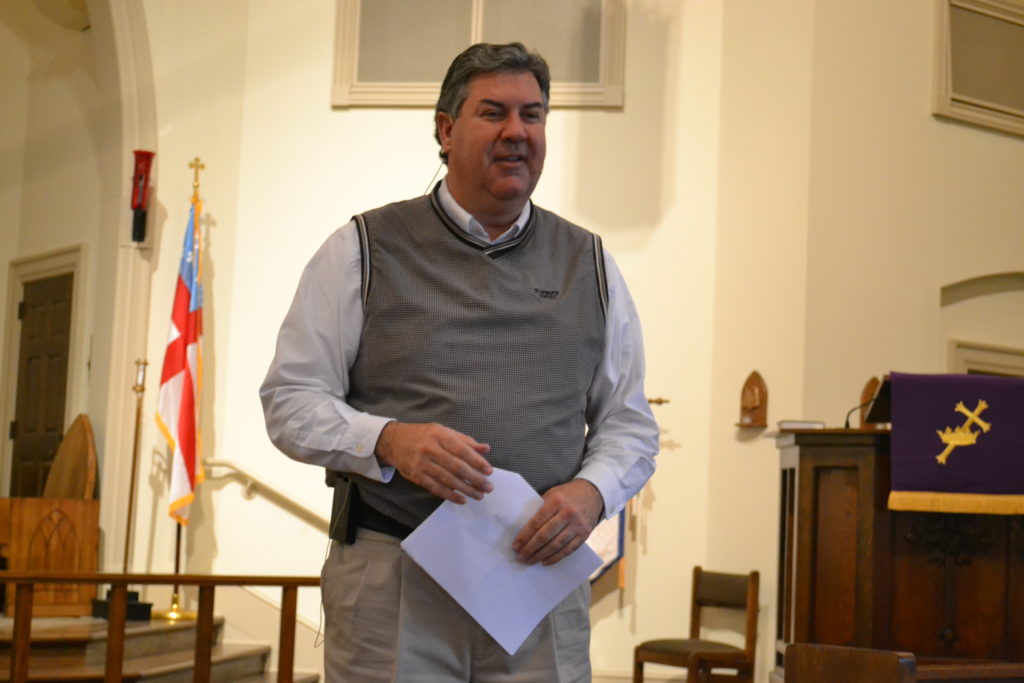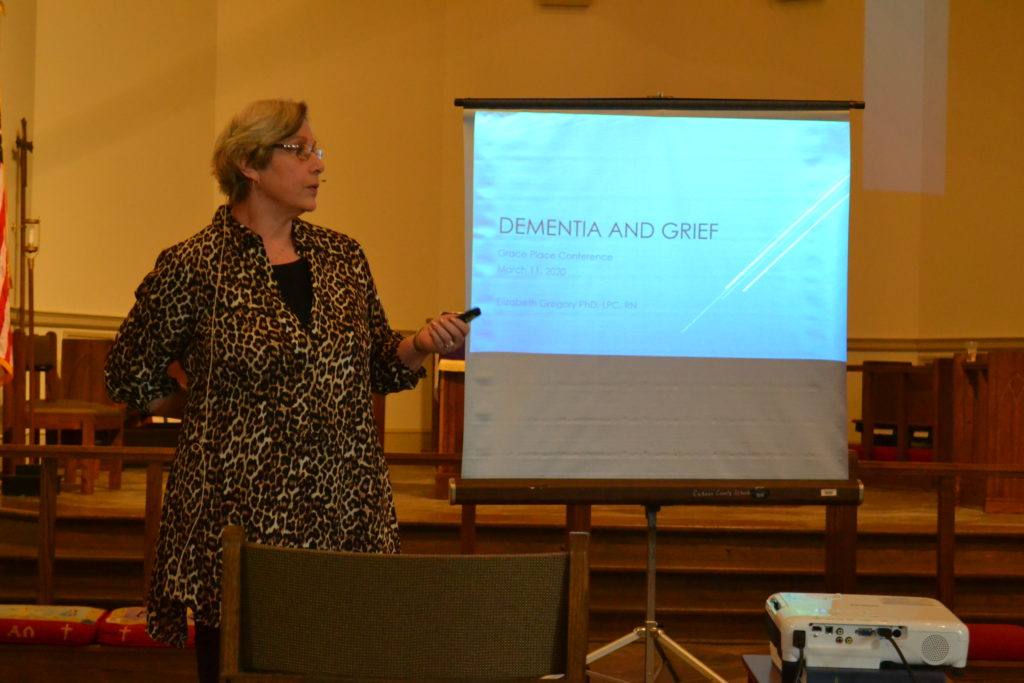
CULLMAN, Ala. – Grace Place, Grace Episcopal Church’s memory loss ministry which provides stimulating activity for dementia patients and hours of respite for their caregivers, held its third annual Caregivers’ Conference Wednesday. The event was open to all professional and family caregivers and offered free CEUs for nurses and social workers.
Three professionals, representing the various aspects of dementia care, lead the conference, providing helpful and educational information to those in attendance.
Those who spoke were William G. “Bill” Nolen, an elder law attorney in Hoover and a charter member of the Alabama State Bar’s Elder Law section who gave advice on the legal side; Senior Placement Services’ Tim Meehan discussing the four levels of care for dementia or related diseases, and Dr. Elizabeth “Beth” Gregory, a psychologist who discussed normalizing grief, the stages of grief a caregiver will likely go through and how grief does not only apply to death.
Deacon Jerry Jacob shared, “Those who attended were caregivers of someone living with dementia, Alzheimer’s or other related diseases. They feel like they’re alone, they feel like they’re the only person going through this. They don’t know how to help themselves cope with the situation. What our speakers did today was let them know there’s ways to address problems, whether it’s legal or ‘what do I do once I can’t take care of them anymore? Where are they going to go?’ What she (Gregory) did was help understand what’s happening to them as a caregiver. Once you hear that explanation, you look at your situation differently, if you really believe what she said, and I hope everyone did. You can handle this, but you have to recognize where you are and where you’re going to wind up once that person either has to leave the home or the person passes on.”
Nolen recommended caregivers get a power of attorney document, which allows the caregiver to make financial and other decisions when the patient is no longer able. Nolen said if caregivers don’t establish a power of attorney, the State could send a conservator, which he advised against. He also advised that if one has power of attorney paperwork that was issued prior to 2013, he or she should consider updating it.
He shared, “If you can avoid a conservatorship, do so.”
Meehan discussed the levels of care for patients and the factors that determine which level of care is needed. There are seven factors alone under Activities of Daily Living that determine what level of care a patient will need, depending what they are able to do.
Meehan said the seven are bathing, dressing, toileting, grooming, medicine taking, transferring and little help with eating.
Meehan said if a patient needs help with three or more out of the seven, independent living is likely not a wise choice. The amount of help the patient needs will determine the needed level of care: assisted living, memory care or skill nursing.
He said memory care and a nursing home are not the same thing. For memory care, the patient must be able to walk a little and feed themselves. Memory care is a distinct form of long-term care for patients with dementia, Alzheimer’s or other memory impairments.
Gregory shared more on the psychological aspects of how caregivers are affected by grief.
“I’m here really to address the emotional hard side, what you are dealing with as caregivers,” she said. “One thing I hear so often from caregivers is, ‘How can I grieve my loved one when they’re still living?’ I want you to understand grief is not one emotion, it is a complex combination of emotions. Grief is not just about dying, it’s about loss of experience.”
She noted the five stages of grief and some common examples of how a caregiver goes through them:
- Denial
- the caregiver hoping the patient is not ill
- the caregiver expecting them to get better
- the caregiver is normalizing strange behaviors
- Anger
- the caregiver shows frustration at the patient
- the resentment of care demands
- the resentment of family who can’t or won’t help
- the caregiver exhibits feelings of abandonment
- Guilt
- the caregiver exhibits unrealistic expectations for the patient, i.e., “I must do everything for them.”
- feeling bad because the caregiver is able to enjoy life
- feeling of failure
- the caregiver has negative thoughts about the patient or wishing they’d go away or die
- the caregiver has certain regrets before the diagnosis
- Sadness
- the caregiver feels overwhelmed by loss
- frequent crying
- the caregiver withdraws from social activities or needs to connect more frequently with others
- the caregiver withholds emotions or displays them more openly than usual
- Acceptance
- the caregiver leans to live in the moment
- the caregiver finds personal meaning in caring for an ill patient
- the caregiver understands how the grieving process can affect their own life
- the caregiver appreciates personal growth that comes from surviving loss
- the caregiver finds a sense of humor
- the caregiver asks for or accepts help from others
Gregory said the main ways to cope with grief or loss are to face your feelings, prepare to grieve more than once and claim the grieving process as your own.
“Everyone grieves differently and at their own pace,” she said.
To learn more about Grace Place, visit www.facebook.com/305ArnoldStreetNE/ or call 256-736-4260.
Copyright 2020 Humble Roots, LLC. All Rights Reserved.






















